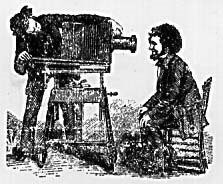Gender Studies is often thought to be interchangeable with Feminist Studies. This assumption is wrong. While Feminist Studies falls into the category of Gender Studies, the latter study is based on how "gender identity and sexual object choice are acquired and given normative status" (Muns and Rajan 485). Introducing Cultural Studies dually defines gender. "'Gender' has two meanings. The first is a contrast word to 'sex' which depicts social construction as opposed to biological determination. The other meaning is any social construction involving the male/female distinction" (Sadar and Van Loon 138). During the women's liberation movement, closely related with the civil rights movement, scholars looked into the culture of women's gender roles, and more specifically that those roles are not biologically formed. Heidi Hartman examined the word "patriarchy" to explain the male domination over women (1979), which led to further discussion of women within/out a gender hierarchy. But these discourses where mostly restricted to white-heterosexual women. Race, ethnicity, and sexual preference where later included. Looking closer at sexual preference, Queer Theory came into the cannon of Gender Studies explicitly directed at defining anything "related to any expression that can be marked as contra-, non-, or anti-straight" (Sadar and Van Loon 146).
Sexuality theories started to focus on the dominance of nature or culture. Especially in the nature/culture feud, Freud had much to say. "His studies...assume a connection between genital identity and the acquisition of gender identity, and privilege the psychosexual experience of the male-child, seen as endowing men with stronger ego boundaries than women" (Munns and Rajan 488). This perspective is very fixed and Alice Jardine goes on to argue the fluid essence of sexuality through a study of language. This example of Gender studies should be seen as an example of how eclectic and varied and pan-discipline the study actually is.
New Keywords: "Gender"
An older meaning was used in reference to grammar dealing with classifications. Now, it is used to differentiate concepts "such as women and men, male and female, masculinity and femininity, sex and sexuality" (140) This can be further divided into gender roles, gender identity, gender inequality, gendering, etc. Gender is a fickle term, but discussion on gender stay within topics dealing with the social/biological construction, societies value/organization with gender, and of course power.
Wikipedia-"Queer Theory"
http://en.wikipedia.org/wiki/Queer_theory
Begun in the 1990's by Foucault and Derrida, Queer Theory builds on earlier feminist studies of the separation of biological gender and one's personal gender identity. Also using previous works of gay/and lesbian studies, "queer theory expands its focus to encompass any kind of sexual activity or identity that falls into normative and deviant categories".
Other- "Alice Jardine"
http://fas.harvard.edu/~rll/people/faculty/jardine.html
Professor Jardine teaches Romance Languages and Literatures and the Studies of Women, Gender, and Sexuality at Harvard. She has written many books on gender interactions, and feminist literature and is interested in "20th and 21st century French and Francophone Literature; Feminist Theory; Women, Gender, and Sexuality Studies; Culture, Arts, and Politics; Postmodern and Transmodern Theories of Culture and Society; The American 1950's".
announcements
This blog was created by and for students in an Introduction to Cultural Studies class at the University of Washington. Through an investigation of urban experience and representation--in theory, in graphic novels and in our own "readings" of Seattle's University District--we considered the formation and history of cultural studies as an (anti)discipline, with a special emphasis on the questions, "What does cultural studies do, and how do you do cultural studies?"
If you'd like to know more about the class, the blog or our U-District artifact project, please contact Gabrielle Dean: gnodean@u.washington.edu.
If you'd like to know more about the class, the blog or our U-District artifact project, please contact Gabrielle Dean: gnodean@u.washington.edu.
Wednesday, April 16, 2008
Subscribe to:
Post Comments (Atom)
blog archive
-
▼
2008
(92)
-
▼
April
(35)
- Identity in City of Glass
- History of Origins: Race Studies
- History of Origins: Gender Studies
- History of Origins: Gender Studies
- History of Origins: America
- History of Origins: Race Studies
- History of Origins: Gender Studies
- History of Origins: Race Studies
- History of Origins: Race Studies
- History of Origins: Media and Science
- History of Origins: Media and Science
- History of Origins: Gender Studies
- History of Origins: Media and Science
- History of Origins: European Theory
- History of Origins: European Theory
- History of Origins: European Theory
- History of Origins: European Theory
- History of Origins: European Theory
- History of Origins: America
- History of Origins: European Theory
- History of Origins: America
- History of Orgins: European Theory
- History of Origins: European Theory
- History of Origins: Great Britain
- History of Origins: Great Britain
- Cultural Studies in Britain
- Cultural Studies in Britain
- History of Origins: General
- History of Origins: General
- History of Origins: General
- History of Origins: General
- "Orientalism"
- Are You an Author?
- "Paris, Capital of the 19th Century"
- READING: A WEB MODEL
-
▼
April
(35)

No comments:
Post a Comment